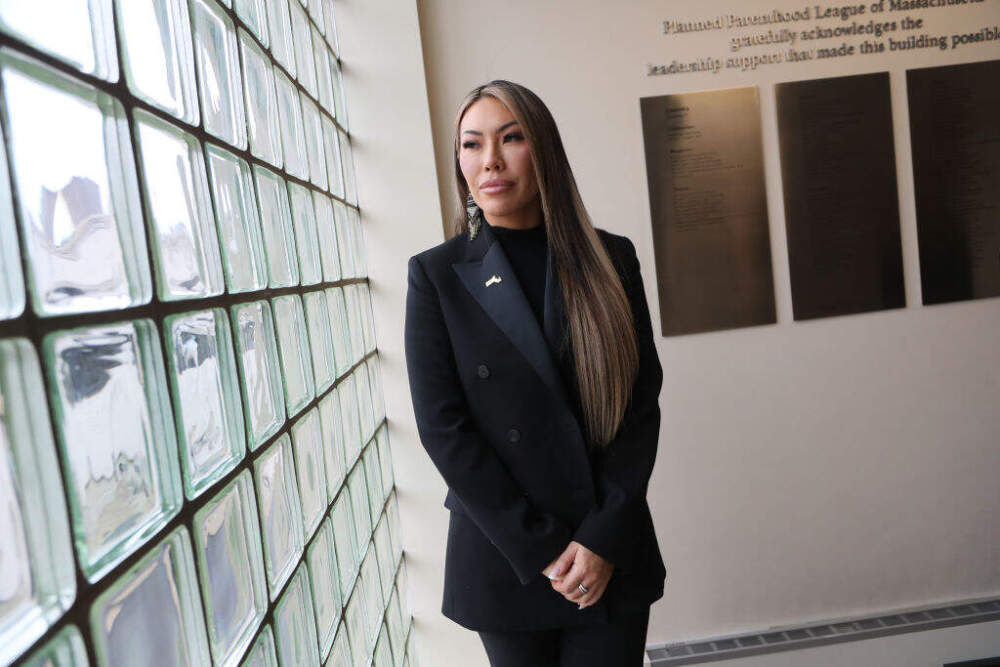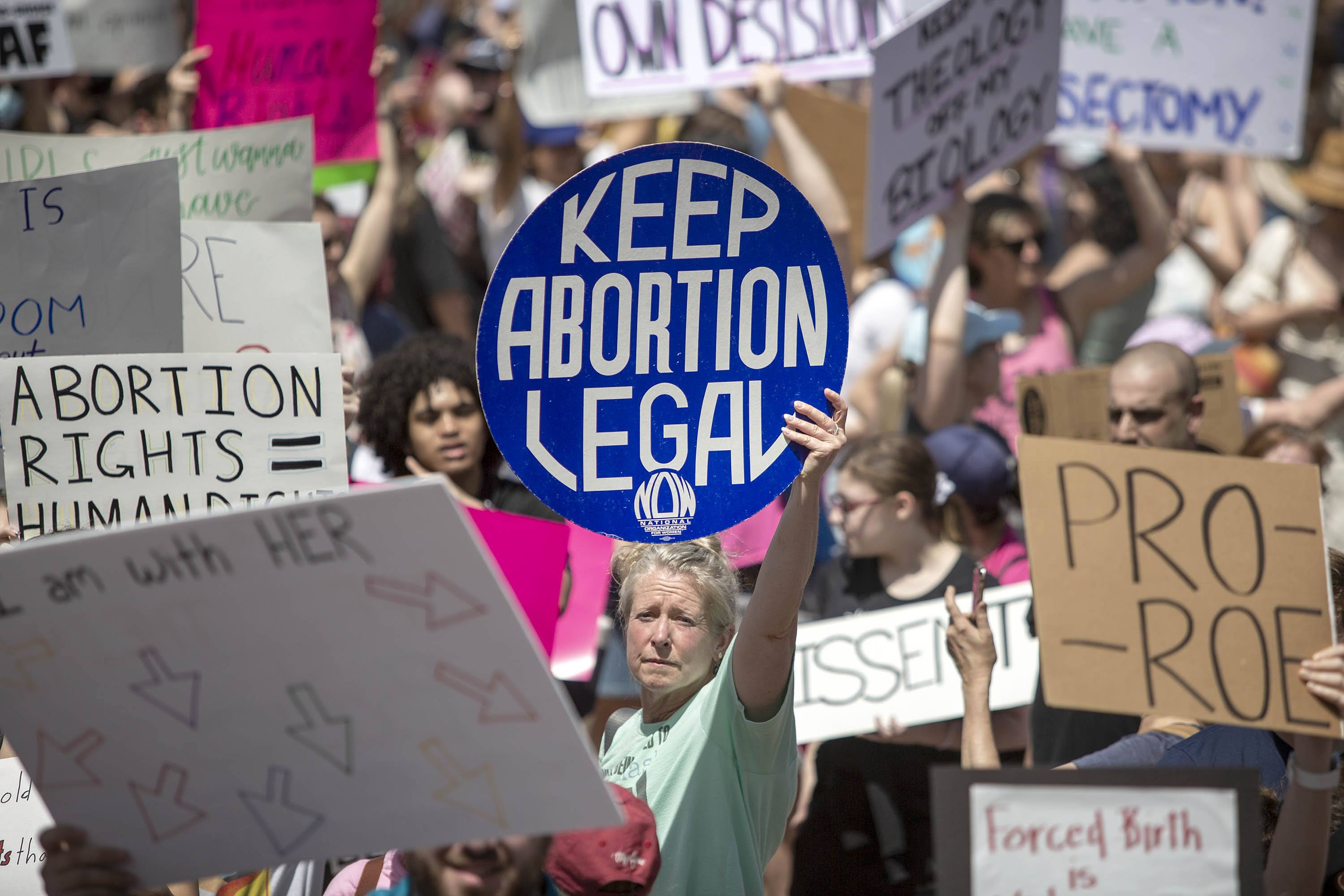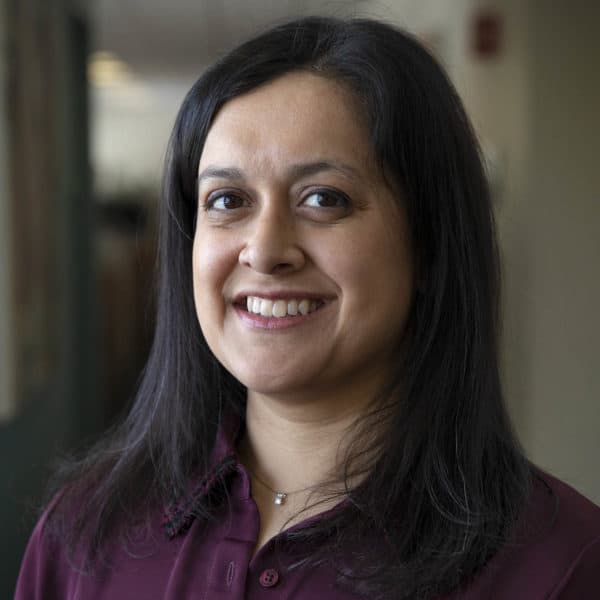Advertisement
Mass. enacted strong abortion protections. Planned Parenthood's new leader wants it to go further

Editor's Note: This is an expanded version of WBUR's weekly health newsletter, CommonHealth. If you like what you read and want it in your inbox, sign up here.
Each year, tens of thousands of patients seek care at Planned Parenthood League of Massachusetts, and Dominique Lee, the organization’s new chief executive, can relate to many of them. She was once a Planned Parenthood patient herself.
Lee, 39, started her career as a health care assistant at a Planned Parenthood clinic in Somerville and later worked at Planned Parenthood centers in California and Arizona.
Since taking the CEO job in Massachusetts in September, she's been focused on increasing access to abortion care. Her team has been expanding telehealth services, training health care providers and pushing for policy changes.
During the past few years, Massachusetts has strengthened the right to abortion, added protections for clinicians who provide abortion and stocked up on the abortion pill mifepristone.
But Lee says the state should do more — by making it easier for young people to end pregnancies, for example, and guarding against potential future restrictions on abortion.
Lee is of Indigenous and Chinese descent, making her the first person of color to lead Planned Parenthood of Massachusetts. She spoke with WBUR about the state of abortion care since last year’s Supreme Court decision that overturned Roe v. Wade, and how her personal story informs the work she does today.
This interview has been edited and condensed.
Priyanka Dayal McCluskey: How would you describe abortion access in the U.S. right now? There have been bans on abortion in several states — but there’s also been an increase in abortions nationally. So how are you thinking about those things?
Dominique Lee: We’ve seen, unfortunately, an exponential amount of restrictive laws around abortion, whether that’s full bans or partial bans.
While states like Massachusetts have really strong protections, there’s still laws on the books that make barriers to care. So that’s our number one priority here in Massachusetts — making abortion more accessible.
The parental consent requirement was reduced from age 18 to 16, but even 16 is still too high. There’s no evidence that it’s medically necessary. On average, it just delays care anywhere from five to 21 days. That’s really critical when someone is deciding what options they have to choose, whether that’s medication abortion through the pill method or in-clinic surgical abortion.
PDM: What impacts are you seeing at your clinics in Massachusetts since abortion bans started taking effect in other states?
DL: We have seen a significant uptick, of 37%, from other states that are restrictive, like Georgia, Florida, Texas. That’s one of the things we are keeping an eye on, as far as how we might make things more accessible for folks who are looking to get this type of care. We have set up a patient navigator system. These are folks whom individuals can call and get information on abortion, get set up for an appointment and other sorts of referrals, like access to funds.
PDM: How would you characterize the level of access to abortion care in Massachusetts, and what more do you think needs to be done here?
DL: I think we have some of the strongest abortion protections, but we still have a lot of work to do to make it more accessible. We’re thinking of how we advance equity by reducing all of the unnecessary burdens and barriers that we know patients face, particularly in communities of color. So things like eliminating parental involvement, proactively thinking about how we limit the ability for us to have TRAP laws [targeted regulation of abortion providers], combat misinformation, as well as thinking about how we provide additional education to our patients.
PDM: What about the gestational limit? It’s 24 weeks in Massachusetts [with certain exceptions]. Is that the right number, or should there be changes to that limit?
DL: There are instances in which individuals have needs past that point. We don't provide those services over 24 weeks, so I don't really have a comment to talk more about that.
PDM: When you look at how things have played out in the year and a half since the Dobbs decision, have there been any surprises?
DL: When I think about how long I've been in this industry, 17 years, I think I was well prepared for Roe to be overturned. So I’m not surprised by any of that. I would say the most surprising is actually the amount of support that we've seen in states where we thought we would see the most restrictions. These past wins in Virginia and Kentucky and Ohio, I think that's been the most surprising. And I think it sends a real clear message that abortion is actually health care, and access shouldn't be restricted.

PDM: Is there anyone from your career — a patient — whose story sticks with you and helps you stay motivated in this work?
DL: We hear so many patient stories. We had this woman who was coming in quite often for abortion services. We were counseling her. It wasn’t until we had a deep discussion that she told us she was in an abusive relationship, and that’s when we talked about different methods that might work for her. This unfortunately happens more times than not. When women are in these abusive relationships, there is birth control coercion where their partners don’t want them to take birth control. We have to find methods that are sort of hidden, that don’t require them to take a pill every day.
That patient, we were able to get her an IUD. The next time we saw her was just for a follow-up, and she was just so grateful, because it had really changed her life. When you help someone like that, it just kind of stays with you.
PDM: You started out on your own as a teenager. Do you think having been independent for so long, that you’re able to relate to some of the patients coming to Planned Parenthood clinics, who are having to make big decisions at young ages?
DL: Oh yeah. I had a pretty tumultuous childhood. I saw my parents struggle to pay medical bills, and for food and electricity. And I was a Planned Parenthood patient, so I understand what folks might be facing, and how important it is to have health care that is accessible, and how life-changing that health care can be. It’s being able to plan a pregnancy so that you’re able to work and go to school. I have been on my own for a really long time. And I think if I had a child at an early age, that would have really changed my life. I definitely wouldn’t be here, that’s for sure.
PDM: What does it mean to be the first person of color in the role of CEO?
DL: I think it's really significant. In our almost 95 years for PPLM, to be the first means a lot. That also comes with a lot of different pressures.
I think diversity of thought and voices are needed when we're talking about improving health outcomes and health equity. That's my number one priority. It’s something that’s important to me as the first person of color as CEO — but comes with a lot of pressure as well.
PDM: What's the pressure that you feel? Is it a responsibility to work on equity?
DL: Just that I do a good job. That I create more opportunities for folks. I think that's really powerful. Am I doing good enough? That is the first thing that I think about. Not only have I been oftentimes the only woman of color, I'm perceived much younger than my experience. So it's all of these extra barriers.
This article was originally published on December 06, 2023.
